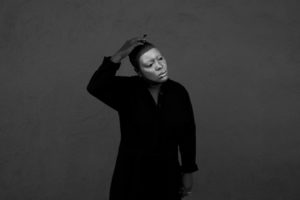Rodney Carmichael for NPR: In the canon of R&B, the ’80s are frequently dismissed as the genre’s most soulless decade. Nelson George called it “the death of rhythm and blues” in his book of the same name, citing the now infamous Harvard Report on marketing black music (commissioned by then-CBS Records exec Clive Davis) as the impetus for the industry’s switch from indifference to a vested interest in R&B. By 1980, he writes, CBS’ roster of black artists had jumped from two to 125 — and as the decade progressed, that sonic integration led to a watered-down R&B sound. Synthesizers replaced live bands. Commercial radio quelled the funk with the Quiet Storm. “Crossover” became the profit motive for packaging black artists for white consumption.
But if you were coming of age in the ’80s, like a teenaged Michelle Lynn Johnson — who took on the name Meshell Ndegeocello around the same time Prince began musing over the woman in the raspberry beret — all those behind-the-scenes industry machinations are incidental to a period whose output soundtracked your adolescence with some of the most emotionally indulgent R&B and pop of the latter 20th century. Meshell Ndegeocello has always been a soul conjurer of sorts, bent but never bound by tradition. With her latest body of work, Ventriloquism, out March 16, she splits the difference — stitching together a wide swath of songs that reflect what we remember, and even regret, of the era in which her own artistic sensibilities were taking root, distilling its clichés into a rootsy, bluesy folk romp.
As with most cover sets, the story is in the song selection. What may at first seem like a random mix of one-off hits from beloved-but-unsung artists (Force MDs, Lisa Lisa & Cult Jam, Surface, Al B. Sure!) and influential megastars (George Clinton, Tina Turner, Janet Jackson, Sade) is actually a carefully curated homage to some of the era’s definitive sonic innovators. It’s a perfect collection for an artist whose genre-bending fusion of rock, soul, funk and R&B befuddled an industry still beholden to racially-coded designations (i.e. “urban”) when she entered the scene.
